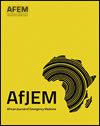人工智能在非洲临床毒理学:新兴应用和障碍
IF 1.2
4区 医学
Q3 EMERGENCY MEDICINE
引用次数: 0
摘要
人工智能(AI)在非洲的临床毒理学中发挥着补充作用,解决了诊断延误、专业知识有限和卫生保健基础设施不足等关键挑战。这种方法有可能提高诊断准确性,优化治疗策略,并推进有毒物质暴露和中毒病例的研究。人工智能驱动的工具,包括机器学习算法和决策支持系统,加强了毒性的早期发现和风险评估。人工智能预测模型通过为个体患者设计治疗方案来促进精准医疗。将其与远程医疗相结合,扩大了获取毒理学专业知识的机会,特别是在资源有限的情况下。此外,人工智能通过分析大型数据集、确定趋势和预测毒理学风险来加速研究,从而促进公共卫生干预。尽管取得了这些进步,但数据贫困、伦理问题和限制性政策等挑战阻碍了其在非洲医疗保健领域的充分潜力。这些差距可以通过政策改革、能力建设举措和健全的人工智能框架来弥补,这对于最大限度地提高人工智能对临床毒理学的益处至关重要。本述评重点介绍了人工智能在非洲的新应用,强调需要合作努力,以确保公平和有效地实施。然而,它的采用受到资金限制、数据集稀缺、基础设施薄弱和道德问题的限制。本文章由计算机程序翻译,如有差异,请以英文原文为准。
Artificial intelligence in clinical toxicology in Africa: Emerging applications and barriers
Artificial intelligence (AI) has a supplementary role in clinical toxicology in Africa, addressing key challenges such as delayed diagnoses, limited expertise, and inadequate healthcare infrastructure. This method has the potential to increase diagnostic accuracy, optimize treatment strategies, and advance research on toxic substance exposure and poisoning cases. AI-driven tools, including machine learning algorithms and decision-support systems, enhance the early detection and risk assessment of toxicities. AI-powered predictive models facilitate precision medicine by designing treatment plans for individual patient profiles. Integrating this in telemedicine expands access to toxicology expertise, particularly in resource-limited settings. Additionally, AI accelerates research by analyzing large datasets, identifying trends, and predicting toxicological risks, thus contributing to public health interventions. Despite these advancements, challenges such as data poverty, ethical issues, and restrictive policies hinder its full potential in African healthcare. These gaps can be bridged through policy reforms, capacity-building initiatives, and robust AI frameworks, which will be crucial in maximizing AI benefits for clinical toxicology. This narrative review highlights the emerging applications of AI in Africa, emphasizing the need for collaborative efforts to ensure equitable and effective implementation. However, its adoption is limited by financial constraints, scarce datasets, weak infrastructure, and ethical concerns.
求助全文
通过发布文献求助,成功后即可免费获取论文全文。
去求助
来源期刊

African Journal of Emergency Medicine
EMERGENCY MEDICINE-
CiteScore
2.40
自引率
7.70%
发文量
78
审稿时长
85 days
 求助内容:
求助内容: 应助结果提醒方式:
应助结果提醒方式:


